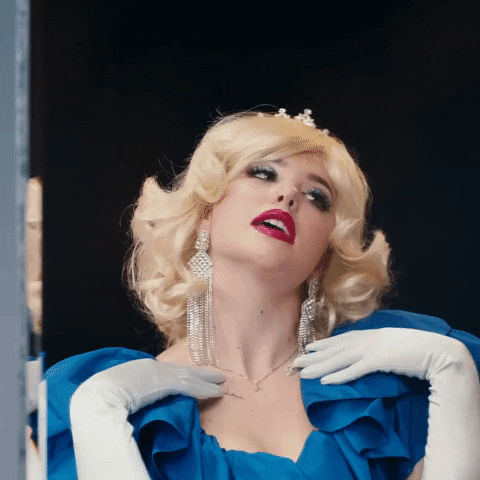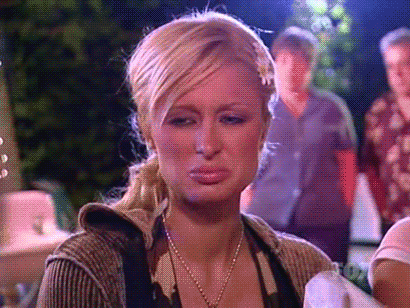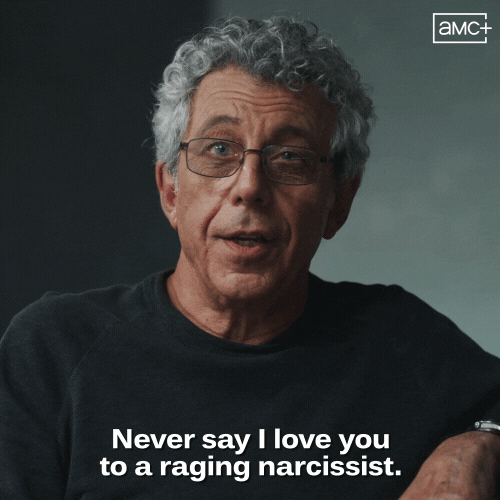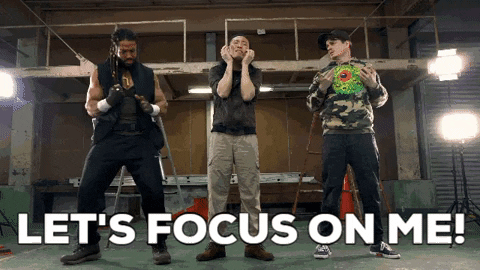Narcissist Body Language: How to Spot the Silent Red Flags
#TalkNerdyToMe® Staff Writer
What Even Is Narcissist Body Language?
So you’re around someone who makes you feel like you’re being watched, judged, or emotionally played like a game of chess... but they haven’t actually said anything mean. That’s the thing with narcissist body language — it’s not what they say, it’s how they exist in space.
Narcissist body language is all the little nonverbal cues narcissists use — usually without even realizing it — to dominate, manipulate, or gain control. Think: intense staring, smug little smirks, taking up too much space, fake warmth… all the stuff that gives you the ick before your brain catches up.
Why It’s Not Just in Your Head
Narcissists are pros at making you second-guess yourself. Especially the covert ones. They'll smile at you with their mouth while their eyes basically scream, “You’re beneath me.” Creepy, right?
Here’s why it matters: your body picks up on all of this, even if your mind tries to rationalize it. And learning to read those signs — the eye contact, the posture, the touch that feels just a little too much — helps you trust your gut instead of gaslighting yourself.
Sneaky Nonverbal Signs Narcissists Use
Let’s break it down. Here are some common narcissist body language behaviors that tend to show up over and over:
The dead-eyed stare (more on that below)
Exaggerated smiling that feels forced or too perfect
Standing way too close to assert dominance
Mirroring your gestures or words like they’re trying to blend in too hard
Touching without asking — the arm graze, the shoulder pat that lingers
Stiff posture or exaggerated swagger to project control
And weirdly? These things might not seem bad at first. You might even think, “Oh wow, they’re really confident.” But over time, it stops feeling like charisma and starts feeling like... control.
The infamous Narcissistic Stare
Let’s talk about the stare. You’ve probably felt it. It’s not regular eye contact. It’s too much. Like they’re trying to psychically dominate you with their pupils.
They hold eye contact just a little too long. There's no warmth in it. It feels like they're reading your weaknesses or watching how you react.
Some people describe it as:
A predator stare
Eyes that feel “cold” or “dead”
Staring during arguments without blinking
A gaze that doesn’t match the tone of the conversation
You’re not imagining it. That stare is a form of nonverbal control — meant to disarm, confuse, or intimidate. It’s like they’re saying, “I’m in charge here,” without saying a word.
That Smirk, Those Eyes, and Other Weird Vibes
You know that little smirk some narcissists do? The kind that shows up when something embarrassing happens to you… or when they’re secretly proud of a jab they threw your way?
That’s not just rudeness — it’s emotional manipulation with a side of facial expressions.
Narcissist facial expressions to watch for:
The Smirk – That twisted half-smile that feels condescending, not cute.
Feigning Empathy – Think sad puppy eyes but without emotional depth.
“Oops I Did It Again” Look – When they cause chaos and grin like it’s all a game.
Contempt Flashes – Tiny micro-expressions of disgust or eye rolls when they think you’re not watching.
Sometimes these expressions happen so fast you barely register them — but your nervous system definitely does.
How They Stand, Move, and Take Up Space
Narcissists don’t just talk a big game — they stand like they own the place.
Here’s what their posture can look like:
Leaning back, arms spread – Taking up more space than necessary.
Standing while others sit – A dominance move in group settings.
Overconfident stride – Like they’re walking down a runway… in a gas station.
Frozen posture when ignored – They shut down or get rigid when they feel unimportant.
There’s this constant need to be seen, take up space, and control the room. Even if they’re not talking.
Covert vs Overt Narcissist Body Language
Not all narcissists are loud and flashy. Some are sneaky, quiet, and just as manipulative. Let’s compare their vibes:
Overt Narcissist Body Language:
Big gestures
Loud presence
Always preening (hair, clothes, phone)
Attention-seeking in every way
Covert Narcissist Body Language:
Quiet but calculating
Fake humility (shoulders hunched but eyes scanning)
Sad puppy eyes followed by smug glances when validated
Passive-aggressive expressions (eyerolls, sighs)
Overt narcissists will bulldoze you with presence. Covert ones make you feel guilty for not giving them the praise they think they deserve.
Pay attention to these two narcissist styles in detail because their body language expressions differ … even though they share a mutual need for control and admiration.
The entrance of an overt narcissist resembles a theatrical performance. Their hands move while they talk and their chest expands as they use expansive gestures during their conversations which resemble a TED Talk presentation. The act of watching people brings them great joy. The narcissist adjusts their shirt collar and smooths their hair while constantly checking reflective surfaces because they believe everyone should be looking at them. Overt narcissists frequently invade personal space through their actions of standing too close and interrupting others while they use their body to make others rotate their conversations around them.
Now, covert narcissists? They’re a different beast. Their body language is quieter, subtler… but just as calculated. Their body shows signs of weakness through slight slouching and head tilting but they continue to monitor your reactions. The covert narcissist scans the room with their eyes even though they appear uninterested in the surroundings. The outward appearance of his body stays relaxed but his energy maintains constant observation. They will display a fake sad expression to prompt others to ask if they are feeling all right. But the moment they get that attention, there's a flicker—just a flash—of smug satisfaction. That’s your tell. People who are covert narcissists use emotional manipulation to get validation from others instead of physically taking up space. Another giveaway? Passive-aggressive movements. The covert narcissist uses subtle expressions such as slow sighs and eye rolls and slight head shakes to express disappointment without speaking any words. You will sense their judgment while wondering about your own actions since they never explicitly state their disapproval. That’s part of the trap. Their nonverbal signals function as a silent way to express guilt and punishment which makes you believe you have failed to fulfill their hidden requirements. Covert narcissists use manipulation in the same way as overt narcissists but they present it as if it originates from your own thoughts. Your ability to trust your instincts becomes more uncertain as time passes while being with them.
Why Your Body Reacts (Even Before Your Brain Does)
Here’s the wild part — your nervous system knows something’s wrong before your conscious mind does.
That creepy feeling? The goosebumps? The urge to leave the room when someone flashes a grin that feels… off?
That’s your body saying, “Hey, this isn’t safe.”
Survivors of narcissistic abuse often report:
Hyper-awareness of other people’s facial cues
Anxiety around fake niceness
Flinching at controlling gestures
Feeling drained after interactions with narcissists
This is not oversensitivity. It’s pattern recognition. Your brain remembers what those stares, smirks, and boundary-crossing touches mean — even if you’ve never said it out loud.
Tips to Trust Yourself Around Narcissists
If you’re feeling confused, overwhelmed, or low-key manipulated but you can’t explain why?
That’s your sign.
Here are some ways to protect your energy when someone’s nonverbal behavior is throwing red flags:
1. Listen to your body.
If you tense up around someone even when they’re “being nice,” that matters.
2. Watch for mismatch.
Are their words kind, but their tone icy? Are they smiling, but their eyes are cold? That disconnect = a problem.
3. Don't over-explain.
You don’t need a dissertation to justify distancing yourself. "They make me feel weird" is valid.
4. Ground yourself.
When you feel like you're under their spell, break eye contact, plant your feet, and take a breath. You’re allowed to step away.
5. Create space.
You don’t have to decode everything in real time. Take time to reflect outside their presence.
Wrap-Up: It’s OK to Walk Away From Bad Energy
Here’s the thing about narcissist body language: it’s subtle, but powerful. It’s in the smirks. The staring. The constant presence that sucks the air out of a room. And if you’ve been on the receiving end, you know how exhausting it is.
You don’t need to wait for them to say something awful to validate your discomfort. Their body language speaks volumes. You get to trust yourself. You get to protect your peace. You get to walk away.





